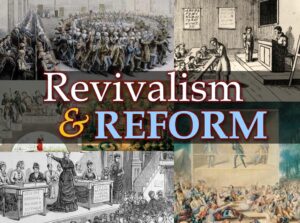If a proposition is going to be taken to be unquestionably true, it is important that no one understand it.
— Roy Rappaport, Ritual, Sanctity, and Cybernetics

The context of that assertion is a discussion about how religious beliefs function to keep a community of diverse populations together. The fundamental belief that binds must at its root be cryptic, at least unfalsifiable, and hence susceptible to different interpretations so that all groups can find it satisfying and changing circumstances will be less likely to shatter the community. Here is the context of the quote:
In some cases the ultimate sacred statements are themselves cryptic; in others they may seem clear, but they are abstracted from cryptic contexts such as myths or the reports of revelations, and an apocryphal quality is often characteristic of the discourse which sanctifies sentences concerning particular social forms or containing specific directives by connecting them to ultimate sacred propositions. The importance of reducing ambiguity and vagueness in messages of social import was earlier noted. In contrast, it is perhaps necessary that considerable ambiguity and vagueness cloak the discourse from which sanctification flows. If a proposition is going to be taken to be unquestionably true, it is important that no one understand it. Lack of understanding insures frequent reinterpretation. (p. 71)
Anthropologist Roy Rappaport found that technologically simple communities like the Maring in New Guinea have “no chiefs or other political authorities capable of commanding the support of a body of followers”. It is up to each individual male, for example, to decide whether he will assist those of another group in warfare. What typically brings the members of a community together, as well as members of other communities to join and share company with them, are religious ceremonies and their related rituals held to honour their deceased ancestors.
This worldly
These sacred occasions where diverse persons got together to celebrate would not be mere fun times. These occasions signalled among the attendees who were likely friends and allies in future endeavours. Family ties might be extended through betrothals. Excess livestock that had been disrupting space for crops and leading to local quarrels would be sacrificed and feasted upon so that the economic and social balance thus restored. So the religious occasions are regulators of society and its ecosystem. The beliefs provide the rationale for the believers to become actively involved in changing and improving their conditions of well-being.

Technology and power
It is different in technologically more advanced societies. In its simplest terms, Rappaport’s argument is that where chiefs do exist in similarly low-technology societies they are bestowed with great religious awe but in fact have little real political power; but where chiefs or other authorities do acquire access to more technology they thereby acquire the means to coerce submission to their authority. They no longer have the same need for being deemed “sanctified” by the community to maintain their status. They don’t need to submit to the controls that come with the religious belief systems and its personal representatives.
As a result, the political power of the authorities, strengthened by technology, replaces religious beliefs and customs as the controlling and unifying force.
Other worldly
Community beliefs in the sacred do not disappear, of course. But they are relegated to “a subsystem”, e.g. “the church”. The beliefs will continue to ratify the authorities as “chosen by God” but they no longer govern all aspects of society and the ecosystem in the way they used to. Instead, the benefits they offer are rewards in the future life after death. Control is maintained by a stress on ethical teaching as the price to be paid for heavenly gifts. They help reduce personal anxieties when the faithful are faced with conditions and experiences over which they have little or no control.
To the extent that the discourse of religion, religious ritual and religious experience contribute to the maintenance of orderliness and the reduction of anxiety without contributing to the correction of the factors producing the anxiety and disorder they are not adaptive but pathological. Indeed, their operation seems to resemble that of neuroses (see, for example, Freud 1907). (p. 73 Link is to PDF of Freud’s article)
Maintaining relevance
Not that religious groups in technologically advanced society are always content to remain a form of pathological adjuncts to society.
But although sanctity may become degraded in the churches of technologically developed societies, “true sanctity,” that uniting the organism through its affective life to processes which may correct social and ecological malfunctions [as we saw above is the function of “sanctity” in societies such as those of the Maring], remains a continuing possibility. Throughout history revitalistic movements have emerged in streets, in universities, in fields among men sensing, and perhaps suffering from, the malfunction of control hierarchies that cannot reform themselves. In the early stages of such movements, at least, the unquestionable status of ultimate propositions rests upon affirmation through the religious experiences of the participants who believe that they are participating in corrective action. Sometimes they are mistaken. Although such movements have not infrequently been more disruptive than that to which they are a response, they may nevertheless be regarded as one of the processes through which cybernetic systems including men, and sometimes other living things as well, rid themselves of the pathology of unresponsiveness. (p. 73)

I wish I had begun my student life in anthropology.
Rappaport, Roy A. “Ritual, Sanctity, and Cybernetics.” American Anthropologist 73, no. 1 (February 1971): 59–76. https://doi.org/10.1525/aa.1971.73.1.02a00050.
If you enjoyed this post, please consider donating to Vridar. Thanks!

One thought on “Changing Function of Religious Beliefs — Trajectory from primitive to advanced societies”